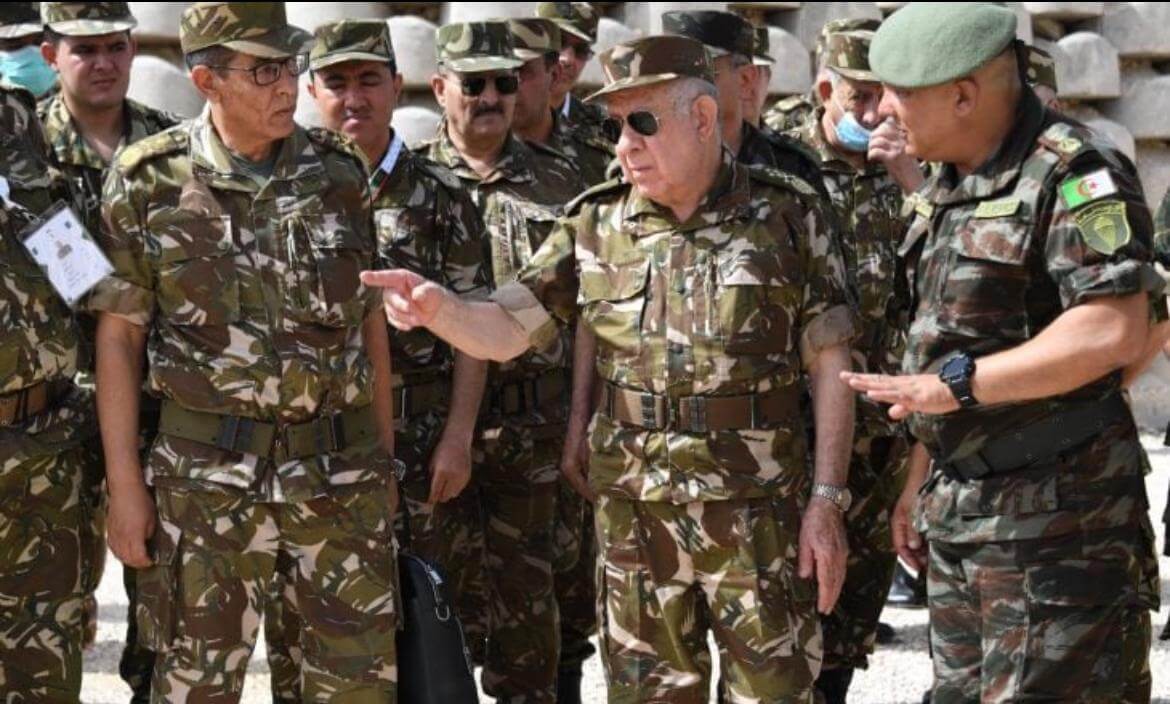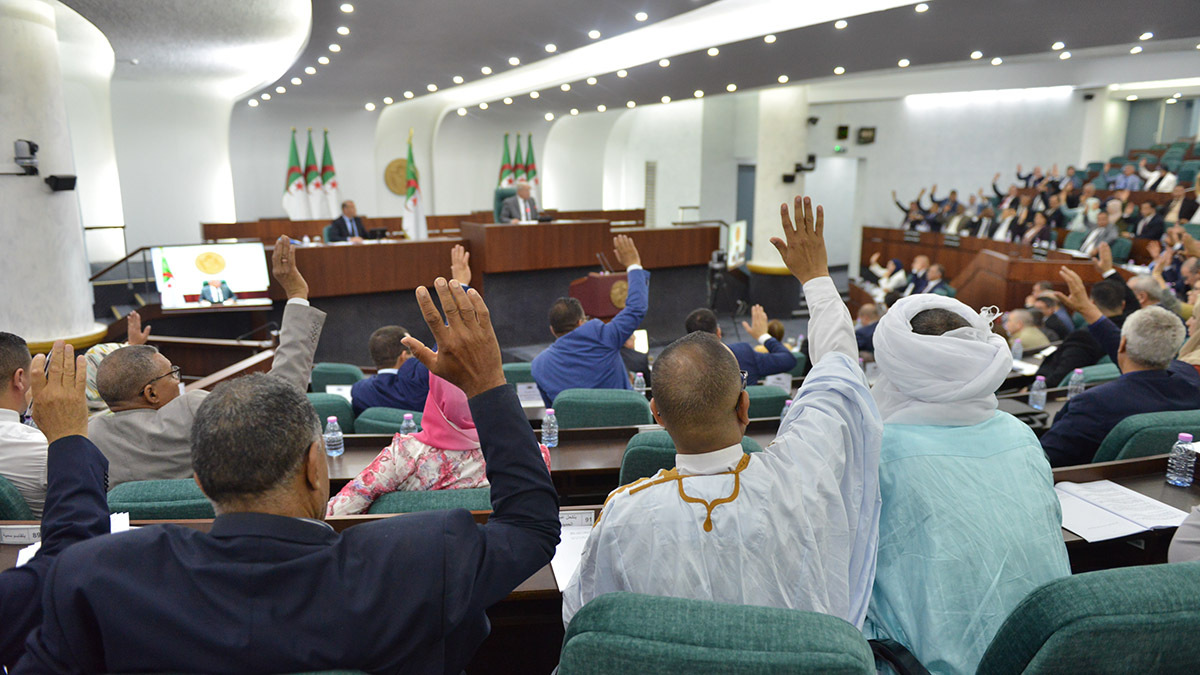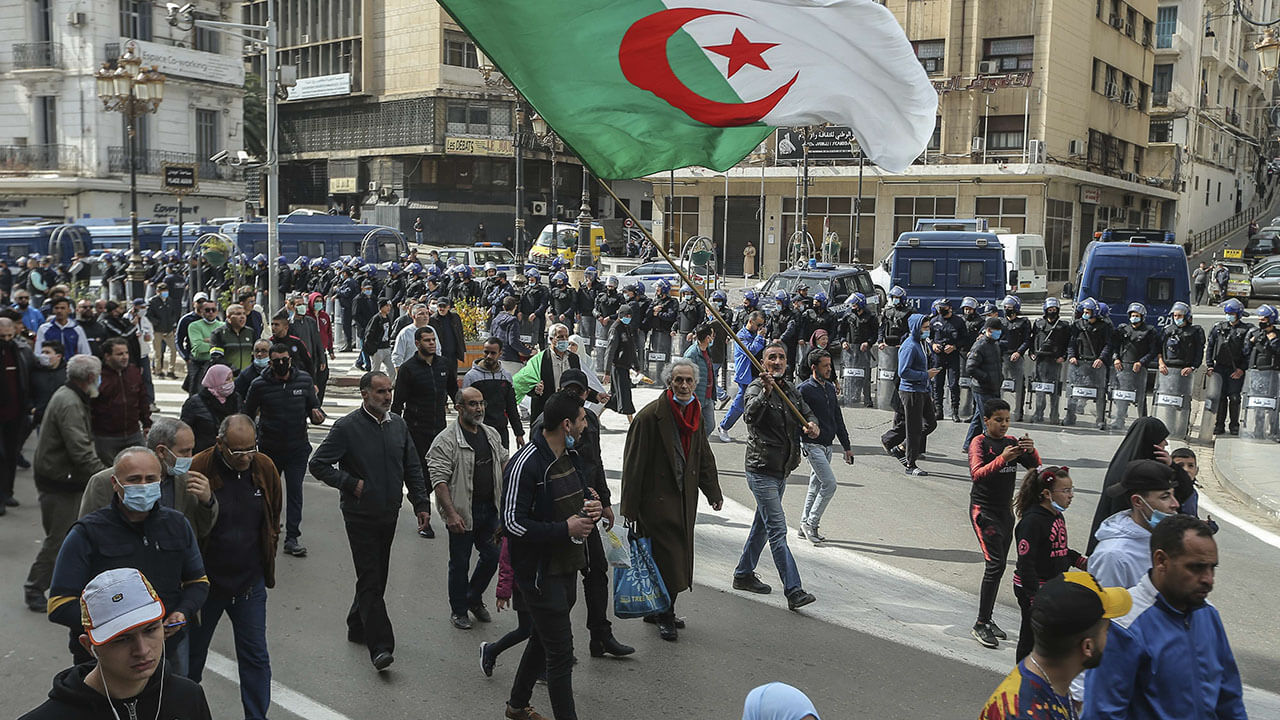Controversy over general mobilisation in Algeria

- Legality and exceptionality
- Threat as justification
- Omnipresent surveillance
- The shadow of the Hirak and internal containment
- National strength or authoritarian drift?
The recent activation of the General Mobilisation Law in Algeria not only inaugurates a new legal framework, but also proposes a structural redesign of the state in exceptional circumstances.
In the name of national defence, the country is establishing mechanisms that place the whole of society – its citizens, its economy, its institutions and its press – under a logic of permanent mobilisation in the face of internal and external threats, some real, others potential. This step, taken by Abdelmadjid Tebboune's government in a context of growing tension in the Sahel, has reignited the political and social debate on the limits between security and freedom, and on the role played by the army in shaping civil power.

Legality and exceptionality
On 22 July 2025, the Algerian government formalised the entry into force of the General Mobilisation Law, following its approval by the National People's Assembly and its publication in the Official Gazette. Although it still needs to be validated by the Council of the Nation and signed by the president, the legal and administrative effects of the law have already begun to unfold. The text, drafted by the Ministries of Justice and National Solidarity, amends Article 99 of the Constitution and establishes a set of measures aimed at reorganising the state apparatus in the event of a serious threat to national security.
The law establishes that the state, its institutions and also the private and civil sectors must submit to the requirements of a ‘state of war or emergency’, enabling a command structure headed by the president of the Republic but operated directly by the Ministry of Defence. The consequences are significant: from the suspension of labour rights to the criminalisation of silence in the media, the requisitioning of material resources, censorship of the media and the obligation to report behaviour considered ‘hostile’.
What appears to be a national defence tool becomes a legal architecture that, according to some observers, allows the citizenry to be transformed into military cogs. ‘The law condenses the entire country into the security apparatus. Citizens, their property and their freedom are at the disposal of the General Staff, without any judicial justification,’ wrote journalist Mounir Douley on his X account. For him, this legislation enshrines a logic of permanent exception: ‘It is a law that would not be enacted by a state that considers itself to be at peace.’

Threat as justification
To understand the logic behind this law, it is essential to look at the evolution of the regional context. Algeria shares more than 6,000 kilometres of border with countries marked by instability: Mali, Libya and Niger are undergoing profound political and military crises that have encouraged the expansion of armed groups, smuggling and uncontrolled migration flows. Drone and militia activity in the Sahel region has grown exponentially, and Algiers has adopted an increasingly vigilant stance against possible incursions or provocations.
The most illustrative incident occurred in April this year, when the Algerian Air Force shot down a Malian military drone that, according to the authorities, had entered the country's airspace without authorisation. Bamako's reaction was immediate, describing the act as a ‘unilateral declaration of war.’ Since then, diplomatic tensions with its southern neighbours have increased, in a regional scenario where foreign powers such as France, Russia, Turkey and the United Arab Emirates are also vying for geopolitical influence.
The Algerian government's perception is clear: national security cannot be limited to responding to attacks, but must anticipate them. As a military adviser told local media, ‘the change is doctrinal: Algeria does not wait to be attacked, it organises itself to prevent it’. From this perspective, general mobilisation is not an emergency measure but a sustained strategy of institutional armouring.

Omnipresent surveillance
The content of the law goes far beyond the strictly military sphere. The new regulations enable the creation of special committees to manage mobilisation, oblige all economic sectors to align themselves with the defence effort, and empower the government to centralise control of transport, energy, water and exports. This is a comprehensive security model that ranges from industrial production to public discourse.
One of the most controversial articles imposes prison sentences of up to two years on any citizen who ‘deliberately’ fails to inform the authorities about individuals or entities considered 'hostile' to the country. The ambiguity of this language – which does not define exactly what ‘hostile’ means – has raised concerns among human rights organisations, which interpret it as legalising social denunciation.
At the same time, press control is tightening: the unauthorised dissemination of information related to mobilisation or military activities can be punished with up to ten years in prison. As a result, many local media outlets have begun to self-censor. Newsrooms are avoiding covering certain topics, not because of direct orders, but because of a growing fear of sanctions. As one Algerian journalist commented anonymously: ‘We don't know exactly where the limits are, so it's better not to go near them.’

The shadow of the Hirak and internal containment
The political timing of this law is not innocent. Following the massive protests of the Hirak movement, which shook the streets in 2019 demanding democratisation, the Algerian state has opted to strengthen political control mechanisms rather than move towards structural reforms.
Opposition sectors and civil society fear that the law will serve as a tool to prevent new mobilisations, through a legal framework that criminalises social organisation and free expression. The opposition party ‘Unir por el Cambio’ expressed this forcefully in a recent statement: ‘This is a decision with a generational impact that cannot be adopted without a broad and pluralistic national debate that includes all political and social actors and the Algerian community abroad.’
In their view, this is not just a legal measure, but a far-reaching political decision that should be accompanied by a process of democratic consultation. However, the government has chosen to present the law as an unquestionable state policy, aligning its allied parties and using the pro-government media to promote a narrative of unity against the external enemy.

National strength or authoritarian drift?
The model of mobilisation adopted by Algeria is not unprecedented in history, but it does represent a significant shift from the institutional frameworks that have governed its political life since the 1990s. Faced with the collapse of regional order in the Sahel, the Algerian state has chosen not only to militarise its borders, but also to prepare its society for a prolonged state of emergency.
What many fear is that this exceptionalism will become structural. General mobilisation, presented as an instrument of protection, may become a new political norm, where control replaces consensus and surveillance replaces public debate. As one user wrote on social media: ‘The war has not yet begun, but we are already losing freedoms.’
Ultimately, the law reflects an underlying tension between two models of governance. One based on democratic participation, pluralism and the rule of law. The other focused on obedience, preventive security and centralised power.








